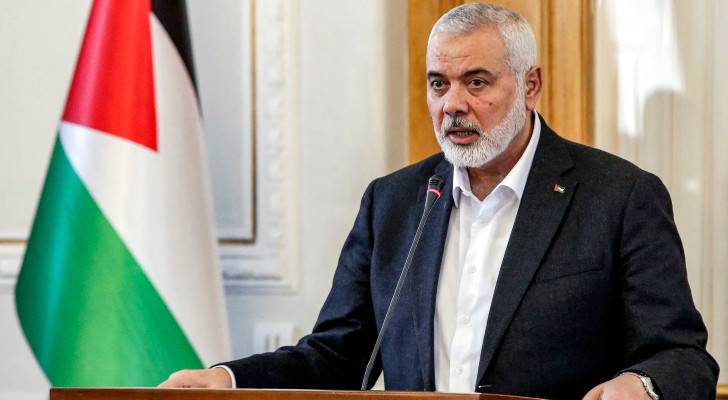Ismail Haniyeh, a Palestinian politician and the head of Hamas's political bureau– he was killed by an ‘Israeli’ airstrike in Tehran.
Who is Ismail Haniyeh, Hamas political leader killed in Iran?
Ismail Haniyeh (known as Abu al-Abd) was a Palestinian politician, the head of Hamas's political bureau, and the Prime Minister of the Palestinian government from 2006 to 2007 – he was killed today by an ‘Israeli’ airstrike on his residence in Tehran – per a statement from Hamas.
Read more: ‘Israel’ assassinates Ismail Haniyeh in Tehran: Hamas
He was imprisoned by the Israeli occupation in 1989 for three years and later exiled to Marj al-Zuhur on the Lebanese-Palestinian border along with several Hamas leaders, where he spent a full year in imprisonment in 1992.
Elected as the head of Hamas's political bureau in 2017, Haniyeh succeeded Khaled Meshaal. He assumed the role of Prime Minister following Hamas's unexpected victory in the parliamentary elections.
Born in 1962 in the Shati refugee camp west of Gaza City, Haniyeh's parents fled their home near what is now Ashkelon, ‘Israel’, during the 1948 Arab-’Israeli’ War.
He studied Arabic literature at the Islamic University of Gaza, where he became involved in the Islamic movement.
After Ahmed Yassin was released from prison by the occupation in 1997, Haniyeh was appointed as his assistant. The close relationship between the two men led to Haniyeh gaining increasing significance within the movement, eventually becoming the group's representative.
In September 2003, Haniyeh and Ahmed Yassin were lightly injured in an ‘Israeli’ airstrike on a residential building in Gaza City. They had exited the building moments before the bomb fell after hearing an ‘Israeli’ aircraft approaching.
Haniyeh was chosen to lead Hamas's campaign for the January 15 elections. Under his leadership, Hamas won 76 out of 132 seats in the Palestinian Legislative Council.
Afterwards, Palestinian President Mahmoud Abbas requested Hamas to form a new government.
However, weeks of negotiations to form a coalition with the previous ruling Fatah movement and other factions failed, forcing Haniyeh to establish a government primarily composed of his team and several technocrats.
In outlining his administration's program, Haniyeh urged the United States and the European Union not to carry out their threats to cut funding to the Palestinian Authority unless Hamas renounced violence and recognized ‘Israel’ as a state..
He emphasized the Palestinians' right to continue their struggle for independence but also expressed a desire to engage in talks with international mediators to resolve the conflict.
“Our government will spare no effort to achieve a just peace in the region, end the occupation, and restore our rights,” he stated.
In 2018, the United States designated Haniyeh as a terrorist and imposed sanctions on him. The State Department cited his “close ties to Hamas’s military wing” and his support for armed struggle, including against civilians.




